Collector’s Guide: Celebrated Artists & Their Early Works, Old Master & Modern Prints
An artist’s early career is often filled with many hardships and struggles — this was true for the Old Masters of the 16th century and the Modern stalwarts breaking ground at the turn of the 20th century
Just as aspiring artists today in cities like New York, Los Angeles, London, Tokyo, and elsewhere around the globe, passionately study, practice, create, perhaps strive for a career-changing solo exhibition at a prominent gallery or museum, or even just seek broader public and critical recognition, so too did the artists we now know as old and modern masters once struggle for a foothold in the ever-promising, sometimes lucrative and often fickle art market.
The Thursday, April 28 auction of Old Master Through Modern Prints presents an incredible opportunity to collect a stunning assortment of early-career images from these seminal artists spanning more than five centuries. Featuring top artists such as Albrecht Dürer, Rembrandt van Rijn, Giovanni B. Piranesi, Pablo Picasso, and Marc Chagall, these exceedingly important prints offer a rare glimpse into these premier artists, now household names, as they began their storied printmaking careers.
Albrecht Dürer
Albrecht Dürer, The Nemesis, engraving, circa 1501-02. Estimate $70,000 to $100,000
At just 30 years old, Albrecht Dürer’s (1471-1528) early career at the dawn of the 1500s was expanding rapidly to new heights of wide-scale European distribution, recognition, and increased popularity. As Dürer’s workshop expanded, the prodigious artist, who was a workshop apprentice himself only some five years earlier, honed his interest in the Italianate focus on human proportion, an influence doubtlessly derived from his recent travel to northern Italy and experiences with Italian Renaissance art. During this period, Dürer created numerous studies on the subject, producing his two earliest and most important engravings, The Nemesis in 1501-02, and Adam and Eve in 1504. The Nemesis, his largest-scale and most revolutionary early engraved work, starkly silhouetted the figure against the blank white background of the paper, literally floating above a stunningly detailed Tirolian landscape as an early masterwork of Dürer’s growing recognition of the human figure.
Rembrandt van Rijn
Prints by Rembrandt van Rijn in our April 28 auction: From left to right: A Cavalry Fight, etching, 1629. Estimate $15,000 to $20,000; Self Portrait in a Cap and Scarf with the Face Dark: Bust, etching, 1633. Estimate $30,000 to $50,000.
Two early Rembrandt (1606-1669) etchings showcase the young virtuoso developing into his own, and offering a glimpse of his artistic brilliance to come, with two contrasting subjects as his skill and confidence grew. In A Cavalry Fight, the young Rembrandt, then only 23 years old, demonstrated his early finesse, sketching a hectic battle scene, deftly using light lines and minimal shading to create a sense of frantic, kinetic conflict as the cavalry descends upon the figure on the left. The second work, Self Portrait in a Cap and Scarf with the Face Dark: Bust, made only four years later, highlights Rembrandt’s dramatic transformation into the beginning of successful, independent career. Made two years following his move from Amsterdam to Leyden, and just a year before his marriage to Saskia van Uylenburghe (the cousin of a prominent Amsterdam art dealer), the portrait depicts Rembrandt under dark shade, with a multitude of meticulously arranged cross-hatching lines which rapidly disappear in later impressions, in a quiet, hunched pose that suggests a shy, reserved artist, markedly different from the proud, expressive, frontal poses of his self-portraits he made from the mid-to-late-1630s onward.
Related Reading: A Newly-Discovered Drawing by Rembrandt Makes its Debut in Old Master through Modern Prints Auction
Giovanni B. Piranesi
Giovanni B. Piranesi, The Skeletons, etching, engraving and drypoint, circa 1750. Estimate $2,000 to $ 3,000.
Piranesi’s (1720-1778) The Skeletons followed the artist’s return to Rome after a stay in Venice, where it is alleged he worked with Giovanni B. Tiepolo. One of a series of four from the Grotteschi (Grotesques) series, The Skeletons combine Tiepolo’s influence with the beginnings of what would establish Piranesi as an architectural master, combining ruins, history, allusion, and an unrivaled sense of detail, texture, and immersive environmental space.
Pablo Picasso
Pablo Picasso, Le Repas Frugal, etching and drypoint, 1904. Estimate $100,000 to $150,000.
Picasso’s (1881-1973) life in the early 1900s in the downtrodden, bohemian neighborhoods of Barcelona, Spain, and Montmarte, Paris, became his themes of his Blue and later Rose periods of work, exploring the fringes of society he counted himself among. Picasso’s second only print, now recognized as a pinnacle of modern printmaking, Le Repas Frugal was made from a second-hand plate (a horizontal landscape which can be glimpsed in the foliage ghosting through the upper-right background) he bought on his limited budget, depicting an emaciated couple among their spare meal and humble interior. Although this plate was completed in 1904 and Picasso made some initial proofs, it wasn’t published as an edition until 1913 when Picasso’s then art dealer, Ambroise Vollard, purchased the plate and steel-faced it. This print is part of the La Suite des Saltimbanques, along with 11 drypoints and 2 additional etchings created by Picasso between 1904-06, his earliest graphic works.
Marc Chagall
Marc Chagall, L’Apparition, I, etching and aquatint, 1924-25. Estimate $4,000 to $6,000.
Made after Chagall’s (1887-1985) move to Paris in 1923, L’Apparition I is based on his oil painting from 1917, one of a number of new print versions of his paintings he redesigned after moving from Russia. Chagall’s works were often inspired by his dreams, with this piece featuring the winged angel figure that would become a motif in many of his later works. L’ Apparition I, (The Vision) depicts a young painter at his easel visited by an angel, much like Chagall himself, envisioning a new living, in the then artistic capital of Europe—Paris.
Do you have an Old Master or Modern print we should take a look at?
Learn about how to consign to an auction, and send us a note about your item.



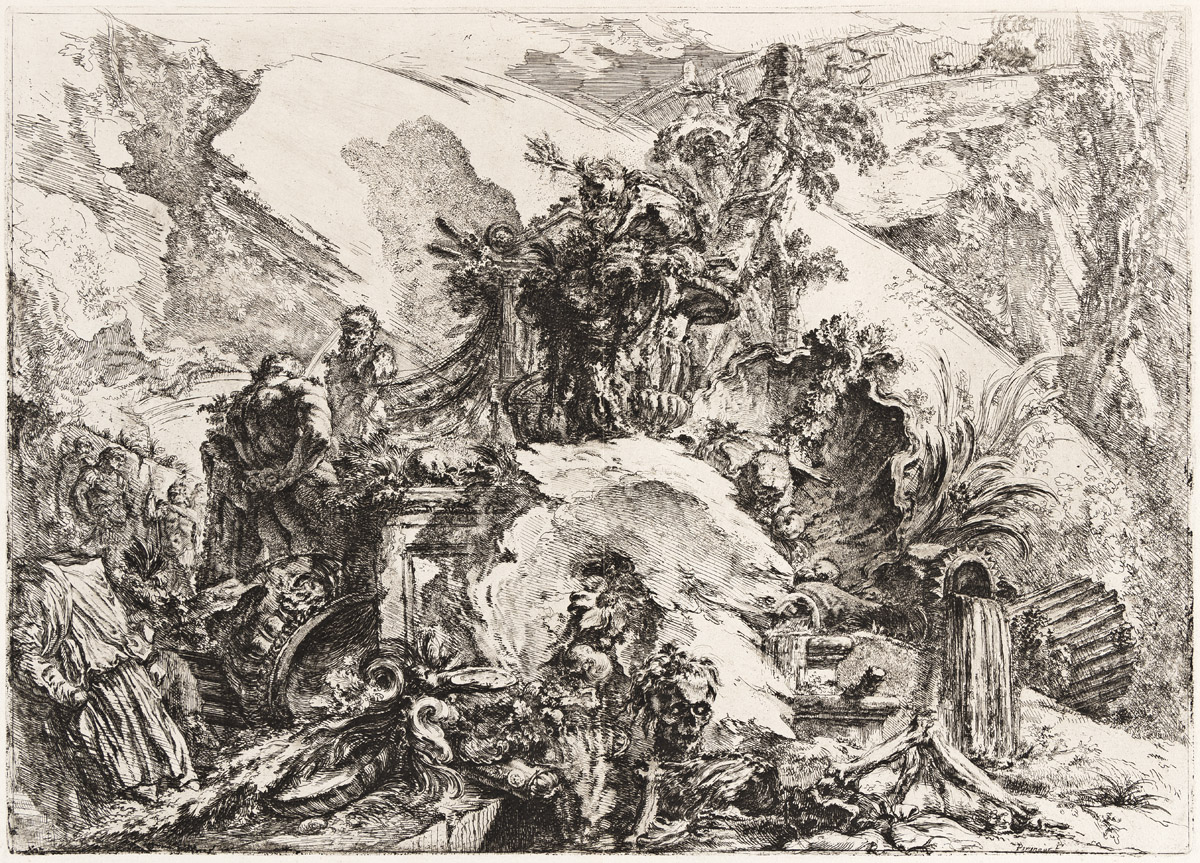
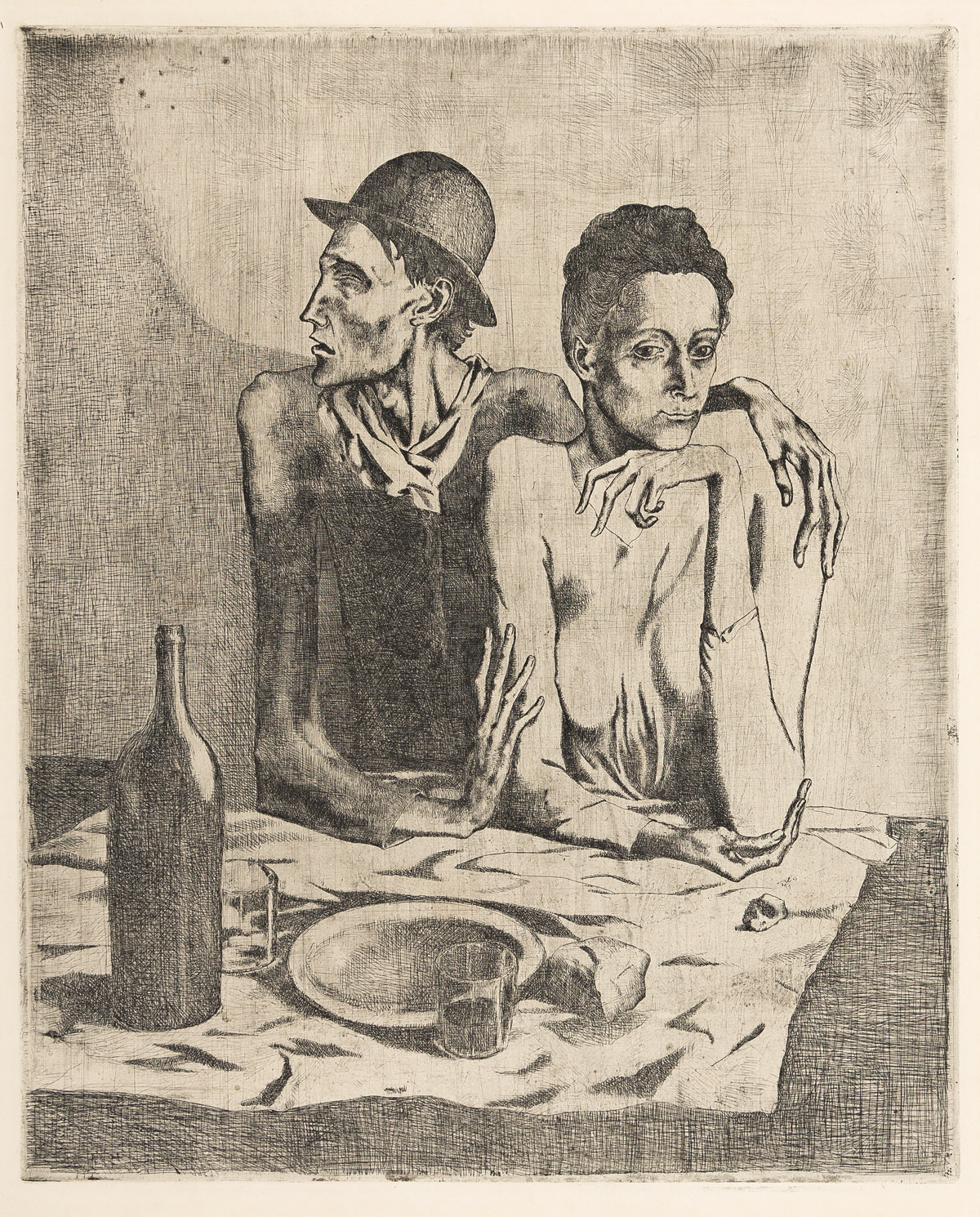
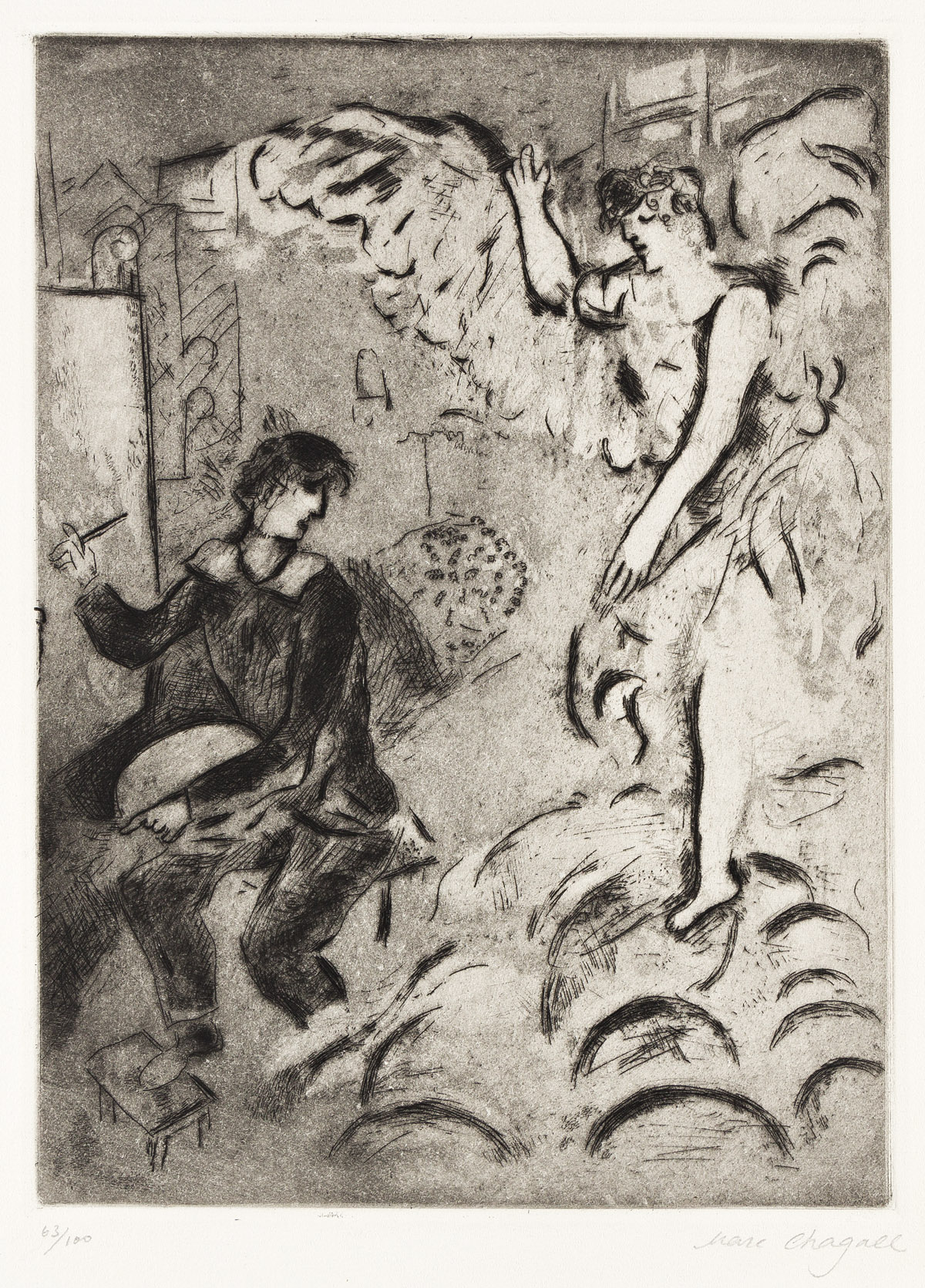
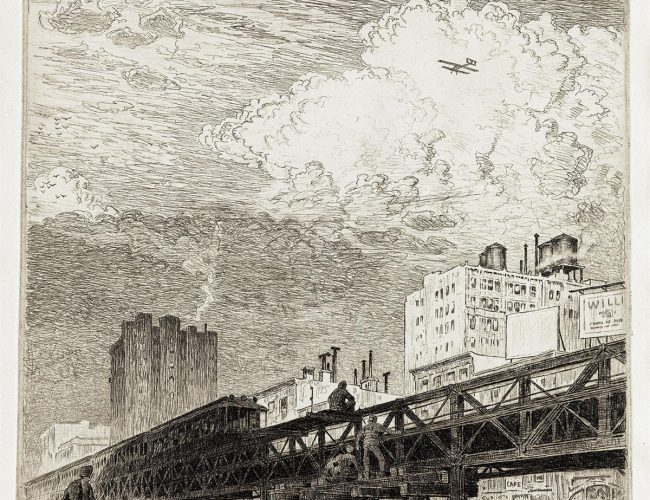

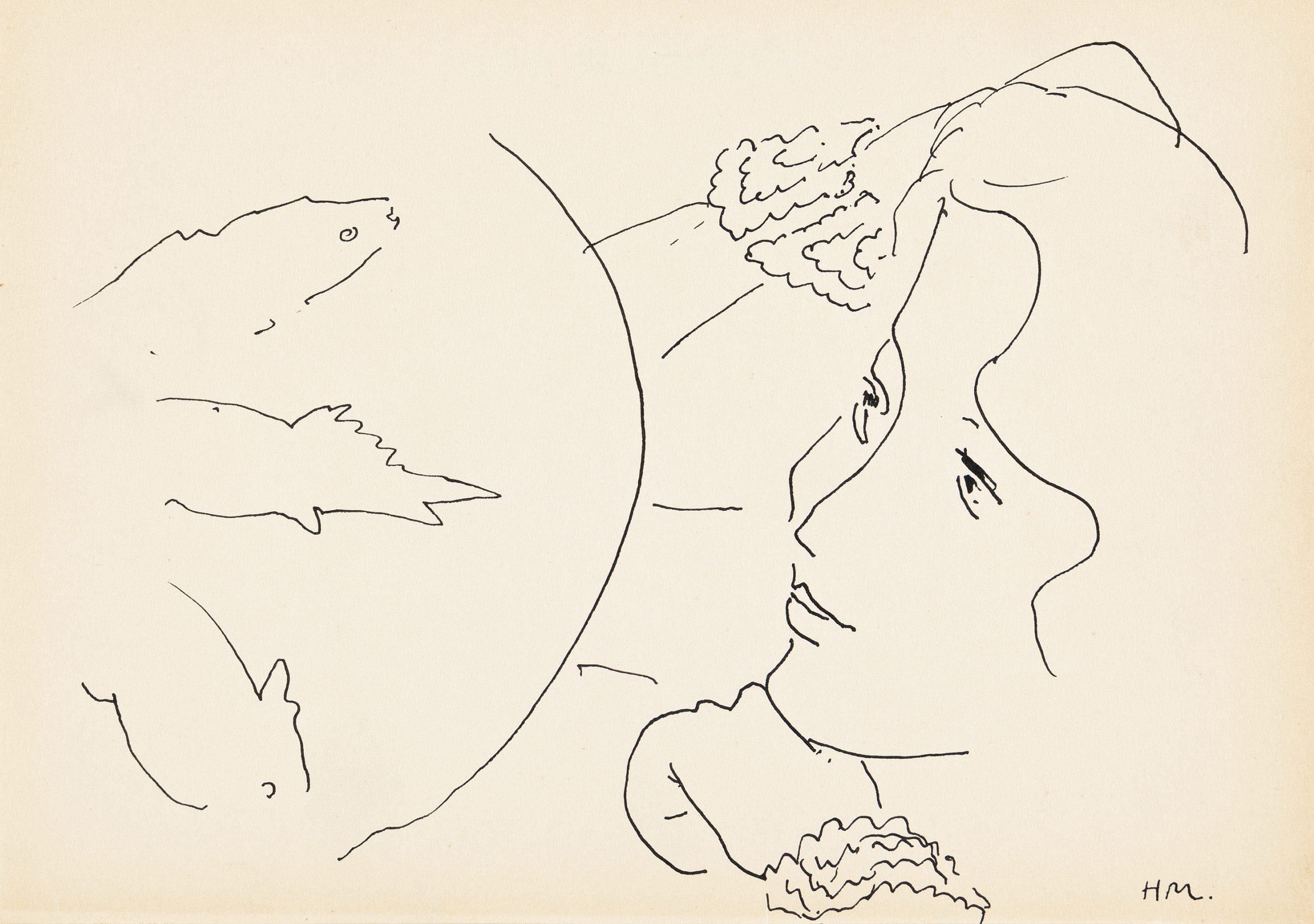










![Grace Meschery-McCormack shares about two copies of Fernando de Rojas’s ‘La Célestine,’ including a limited edition copy illustrated by Pablo Picasso.
At auction April 22. Learn more about the works at the link in our bio.
#Rarebooks #rarebookdealer #antiquarianbooks #auctions
_______________________________________
Music Credit:
Schubert - Piano Quintet in A major ‘The Trout’, D. 667 - IV. Andantino – Allegretto
Music provided by Classical Music Copyright Free on Youtube [https://tinyurl.com/visit-cmcf]
Watch: • Schubert - Piano Quintet in A major ‘...]](https://scontent-iad3-1.cdninstagram.com/v/t51.75761-15/491443494_18499096345036585_5935932878956098058_n.jpg?stp=dst-jpg_e35_tt6&_nc_cat=107&ccb=7-5&_nc_sid=18de74&_nc_ohc=OlBShB8qEWAQ7kNvwHbrXqd&_nc_oc=Adn09Fh3YL-11OkpQcrYGgFN9beLpm0IfGUn2bwN7iJs6d4v8qMeP8kSYmCw82y2ewU&_nc_zt=23&_nc_ht=scontent-iad3-1.cdninstagram.com&edm=AM6HXa8EAAAA&_nc_gid=tAw7REYwZZLTJH2gYFDRIA&oh=00_AfFntE5BpdhgoGI95lZi2PLq4mMH4VrDzFOq34kH3ACHug&oe=681B8F91)




